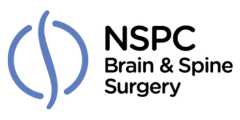The following article was published in the Rosalynn Carter Institute for Caregiving newsletter. It is an important reminder for all caregivers to take care of themselves, too.
HOW STRESS AFFECTS YOUR HEALTH
Your body responds to stressful situations by releasing certain types of hormones. As the level of stress hormones in your body increases, it begins to affect different organs. These hormones can damage your heart, stomach, and liver, and it can affect your emotions.
Replacing unhealthy coping strategies such as self-harm or substance abuse with proper stress management is one key to maintaining your health and your ability to care for your loved one. It will help your body process the hormones in a way that is less damaging to yourself.
CAUSES OF CAREGIVER STRESS
- Emotional demands of caring for a loved one: Your loved one needs a high level of physical and emotional care.
- Conflicting demands: You feel pulled in different directions to meet your own needs, your care recipient’s needs, and the needs of many other people in your life (spouse, children, family, employers, co-workers, etc.).
- Uncertainty of roles: The role you play in your loved one’s life will change. Sometimes there will be confusion between “what was” and “what is.” This shifting of roles can be an adjustment for both the caregiver and care recipient. An adult daughter finds herself telling her mother what to do. A spouse will be more of a parent than a partner. This changing dynamic can be uncomfortable and cause stress.
- Workload: There’s just too much to do.
SIGNS OF STRESS
Body: fatigue (tiredness), headaches, skin irritations, frequent infections, breathlessness (feeling out of breath), tight muscles, muscle twitches
Emotions: irritability, depression, loss of confidence, more fussy, apprehension (fear that something terrible will happen), alienation (withdrawal from social group or activity), apathy (loss of interest, enthusiasm, concern)
Mind: worrying, making hasty decisions without thinking them through, impaired judgment, muddled thinking, nightmares, negativity, indecision
Behavior: insomnia (difficulty sleeping), accident-prone (tend to have more than the typical number of accidents), loss of appetite, loss of sex drive, drinking more, smoking more, restlessness
HEALTHY VS. UNHEALTHY STRESS MANAGEMENT
You may already feel you are managing your stress. We ask you to stop and take a second to think about it. Are any of the situations below familiar?
- Are you drinking more alcohol than usual?
- Are you taking more medications than prescribed? Are you taking medications prescribed to your loved one for sleep or pain?
- Are you eating more, especially “comfort foods” that are high in sugar, carbohydrates, or fats?
- Do you lose yourself in television programs or movies? Having “pity parties”—feeling sorry for yourself—all the time?
- Are you yelling at the people around you about anything and everything?
- Do you feel like a victim and blame other people for whatever is wrong?
CREATING SOLUTIONS: STEPS TO MANAGE CAREGIVER STRESS
- Take a walk or make time for other types of exercise
- Make time to spend with friends and family you enjoy
- Call friends, neighbors, and family on the phone to stay in touch with others
- Learn and practice relaxation techniques
- Take time for your physical health
- Keep your own doctor, dentist, and other healthcare appointments
- Ask for help, and let others help you



































